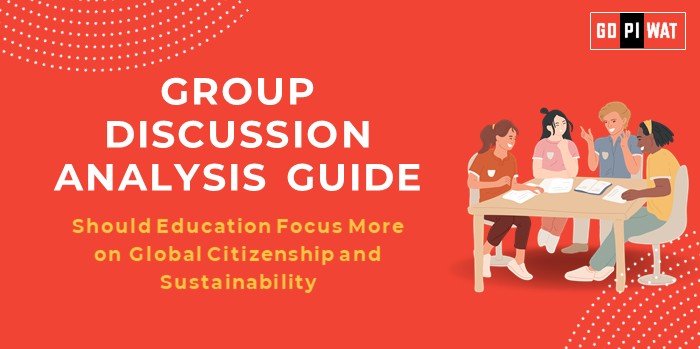📋 Analysis Guide: Should Education Focus More on Global Citizenship and Sustainability?
🌟 Introduction to the Topic
Context: The interconnected challenges of climate change, social inequality, and economic disparity highlight the need for a globally conscious and sustainability-focused education system. Business leaders and policymakers increasingly recognize global citizenship and sustainability as crucial for shaping a responsible workforce and innovative problem-solvers.
Background: The concept of global citizenship emerged with the globalization of economies and the push for interconnectedness among nations. Sustainability, introduced as a core principle in the 1987 Brundtland Report, has since evolved into a driving force for education, particularly after the UN’s Sustainable Development Goals (SDGs) emphasized it in 2015.
📊 Quick Facts and Key Statistics
- 🌍 Global Sustainability Education Enrollment: 63% of institutions globally include sustainability in curricula (UNESCO, 2023).
- 💡 Youth Climate Engagement: 80% of youth in developed nations consider sustainability a top priority (World Economic Forum, 2023).
- 📖 SDG Inclusion in Education: 193 countries committed to SDG Goal 4.7 (UN, 2023).
- 📈 Impact of Global Citizenship Education: A 15% increase in civic engagement in schools with global citizenship curricula (OECD, 2022).
👥 Stakeholders and Their Roles
- 🏛️ Governments: Mandate sustainability education and allocate funding.
- 🏫 Educational Institutions: Develop curricula and promote interdisciplinary learning.
- 🏢 Private Sector: Collaborate on practical sustainability projects and initiatives.
- 🌐 NGOs/International Bodies: Provide frameworks like SDGs and resources for integration.
🏆 Achievements and Challenges
✨ Achievements:
- ✔️ Increased Awareness: Over 70% of students in top universities recognize global challenges such as climate change.
- ✔️ Curricular Advancements: Leading schools like Harvard and IIMs have incorporated sustainability.
- ✔️ Youth Leadership: Movements like Fridays for Future show global citizenship in action.
⚠️ Challenges:
- 🚧 Access Disparities: Developing countries face resource constraints in adopting such curricula.
- 🚧 Resistance to Change: Traditional curricula and faculty adaptation lag behind.
- 🚧 Global Benchmarking: Nations like Finland lead in holistic sustainability education; others struggle to implement SDGs effectively.
Case Study: Finland’s Curriculum Reform incorporates global citizenship and sustainability from primary to university levels, yielding high youth engagement in civic activities.
💡 Structured Arguments for Discussion
✔️ Supporting Stance:
“Focusing on sustainability and global citizenship equips students to tackle 21st-century challenges effectively.”
❌ Opposing Stance:
“Adding these themes to already burdened curricula could dilute essential academic rigor.”
⚖️ Balanced Perspective:
“While essential, implementation must balance foundational academics and real-world application.”
🧠 Effective Discussion Approaches
- 📊 Data Impact: “With over 193 countries committed to SDG 4.7, why hasn’t education universally adopted sustainability-focused curricula?”
- 📖 Case Study Intro: “Finland’s reforms showcase what’s possible when sustainability becomes a core educational goal.”
🛠️ Counter-Argument Handling:
- Use global benchmarks (e.g., Finland) as evidence.
- Address feasibility concerns by suggesting pilot programs.
🔍 SWOT Analysis
💪 Strengths:
- ✔️ Aligns with global trends.
- ✔️ Enhances employability.
❌ Weaknesses:
- 🚧 Limited resources.
- 🚧 Resistance to change.
🌟 Opportunities:
- 📈 Partnerships with corporations for hands-on projects.
⚡ Threats:
- ❓ Uneven adoption across socio-economic groups.
📈 Connecting with B-School Applications
Real-World Applications: Integration into courses on strategy, operations, and ethics. Partnerships with NGOs for sustainability case studies.
Sample Interview Questions:
- 💬 “How would you incorporate sustainability into business strategies?”
- 💬 “Discuss the role of education in fostering global leaders.”
Insights for Students: Highlight practical impacts, such as corporate ESG strategies, and use examples of successful integration (e.g., IIM Bangalore’s sustainability programs).


